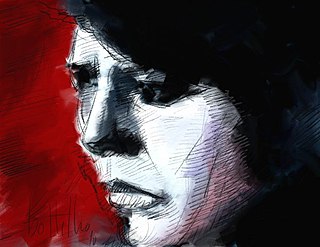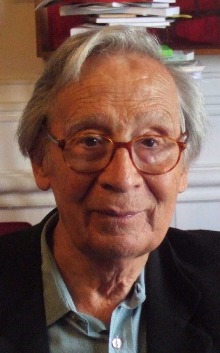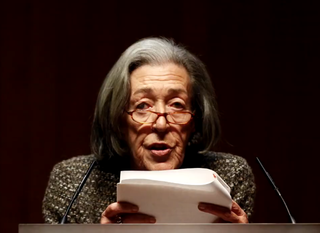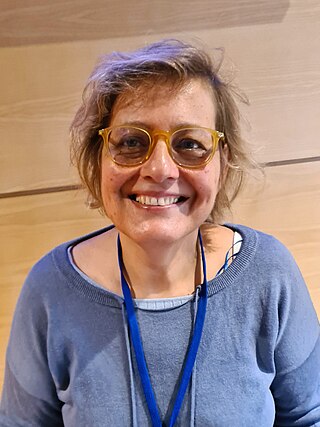
Sóror Mariana Alcoforado was a Portuguese nun living in the convent of the Poor Clares in Beja, Portugal.

Manuel Alegre de Melo Duarte, GCL is a Portuguese poet and politician, member of the Socialist Party, and a candidate for the 2006 Portuguese presidential election. He ran again in the 2011 presidential election, this time backed by the Left Bloc and the Socialist Party. Alegre was awarded the Camões Prize in 2017.

Natália de Oliveira Correia, GOSE, GOL was a Portuguese intellectual, poet and social activist, as well as the author of the official lyrics of the "Hino dos Açores", the regional anthem of the Autonomous Region of the Azores. Her work spanned various genres of Portuguese media and she collaborated with many Portuguese and international figures. A member of the Portuguese National Assembly (1980–1991), she regularly intervened politically on behalf of the arts and culture, in the defense of human rights and women's rights.

Vergílio António Ferreira, JOSE was a Portuguese writer, essayist, professor and a key figure in Portuguese-language literature. His prolific literary output, comprising works of fiction, philosophical essays and literary diaries, are generally divided into neorealism, dominant in Portuguese fiction at the time, and existentialism.

Urbano Tavares Rodrigues, GCIH was a Portuguese professor of literature, a literary critic and a fiction writer, winner of many literary prizes.
Hélia Correia is a Portuguese novelist, playwright, poet and translator.

Maria de Fátima de Bivar Velho da Costa was a Portuguese writer who was awarded the Camões Prize in 2002. She took part in the Portuguese Feminist Movement, and became one of the authors of the book Novas Cartas Portugesas, together with Maria Teresa Horta and Maria Isabel Barreno. The authors, known as the "Three Marias," were arrested, jailed and prosecuted under Portuguese censorship laws in 1972, during the last years of the Estado Novo dictatorship. The book and their trial inspired protests in Portugal and attracted international attention from European and American women's liberation groups in the years leading up to the Carnation Revolution.
Jorge Torlades O'Neill, was the titular and official head of the Clanaboy O'Neill dynasty, whose family has been in Portugal since the 18th century.

Ana Luísa Amaral was a Portuguese poet. Professor at the University of Porto, she held a Ph.D. on the poetry of Emily Dickinson and had academic publications in the areas of English and American poetry, comparative poetics, and feminist studies. She was a senior researcher and co-director of the Institute for Comparative Literature Margarida Losa. Co-author of the Dictionary of Feminist Criticism and responsible for the annotated edition of New Portuguese Letters and the coordinator of the international project New Portuguese Letters 40 Years Later, financed by FCT, that involves 10 countries and over 60 researchers. Editor of several academic books, such as Novas Cartas Portuguesas entre Portugal e o Mundo, or New Portuguese Letters to the World.

The Sophia Awards are the Portuguese cinematographic and film awards, assigned annually, which aim to recognize the best national productions. Its name was chosen in honor of the Portuguese poet and writer Sophia de Mello Breyner Andersen and also because "Sophia" is a classic Greek name which means "wisdom".

Maria Isabel Barreno de Faria MartinsGOIH was a Portuguese writer, essayist, journalist and sculptor. She was one of the authors of the book Novas Cartas Portugesas, together with Maria Teresa Horta and Maria Velho da Costa. The authors, known as the "Three Marias," were arrested, jailed and prosecuted under Portuguese censorship laws in 1972, during the last years of the Estado Novo dictatorship. The book and their trial inspired protests in Portugal and attracted international attention from European and American women's liberation groups in the years leading up to the Carnation Revolution.
Portuguese animation is animation created in Portugal or by Portuguese animators.
Domingos Correia Arouca was a Portuguese general, administrator and colonial governor of Cape Verde from 1835 to 1837, he was also a Portuguese politician and freemason.

Hirondina Joshua, is a Mozambican poet, prose writer and jurist. She is a member of the Mozambican Writers Association. The book Córtex was translated into Spanish and published in Mexico; In Brazil, her book Os Ângulos da Casa was adapted into a modern dance piece. She participated in the Edinburgh International Book Festival, the largest public celebration of the written word in the world.

New Portuguese Letters is a literary work composed of letters, essays, poems, fragments, puzzles and excerpts from legal documents, published jointly by the Portuguese writers Maria Isabel Barreno, Maria Teresa Horta and Maria Velho da Costa in 1972. The authors became known internationally as "The Three Marias", which became the title of the book in its first translation to English.

Ana Margarida Taborda Duarte Martins de Carvalho is a Portuguese writer and journalist. She is the only Portuguese writer to be award with the Grande Prémio da Associação Portuguesa de Escritores (APE/DGLB) for each of her three successive works of literary fiction; they were for two novels and a short-story collection.
Maria Isabel Guerra Bastos Gonçalves, who used the pseudonym Isabel da Nóbrega, was a Portuguese writer, playwright, columnist, translator and radio broadcaster. On 9 June 2000, she was made a Grand-Officer of the Order of Merit. On 25 April 2011, she was made a Grand-Officer of the Order of Liberty.

Diana AndringaGColL, is an Angola-born Portuguese journalist, columnist, documentary filmmaker and producer. She is best known for co-directing the Guinea-Bissau film The Two Faces of War along with Flora Gomes.

Isabela Figueiredo, is a Portuguese journalist, teacher, and writer.














